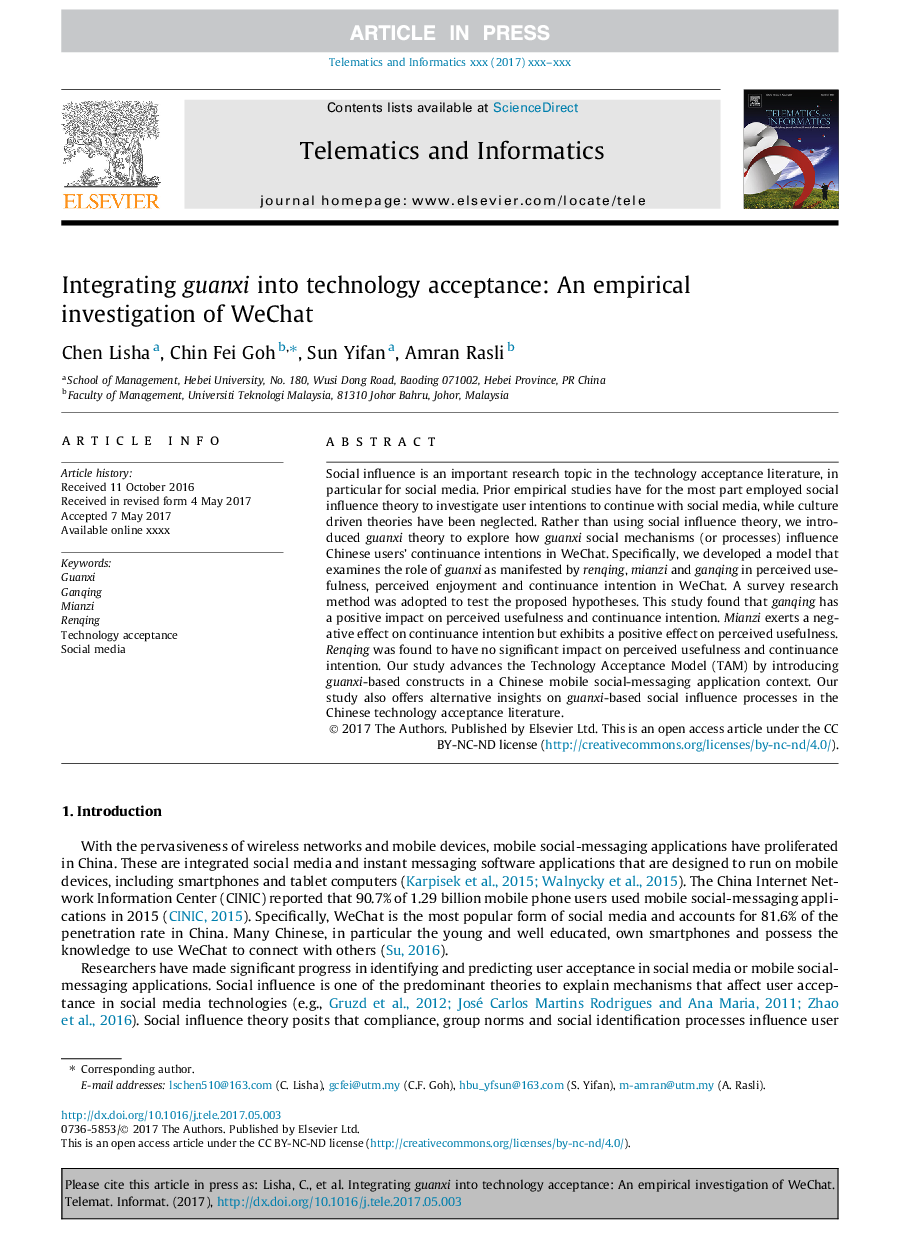| Article ID | Journal | Published Year | Pages | File Type |
|---|---|---|---|---|
| 6889990 | Telematics and Informatics | 2017 | 18 Pages |
Abstract
Social influence is an important research topic in the technology acceptance literature, in particular for social media. Prior empirical studies have for the most part employed social influence theory to investigate user intentions to continue with social media, while culture driven theories have been neglected. Rather than using social influence theory, we introduced guanxi theory to explore how guanxi social mechanisms (or processes) influence Chinese users' continuance intentions in WeChat. Specifically, we developed a model that examines the role of guanxi as manifested by renqing, mianzi and ganqing in perceived usefulness, perceived enjoyment and continuance intention in WeChat. A survey research method was adopted to test the proposed hypotheses. This study found that ganqing has a positive impact on perceived usefulness and continuance intention. Mianzi exerts a negative effect on continuance intention but exhibits a positive effect on perceived usefulness. Renqing was found to have no significant impact on perceived usefulness and continuance intention. Our study advances the Technology Acceptance Model (TAM) by introducing guanxi-based constructs in a Chinese mobile social-messaging application context. Our study also offers alternative insights on guanxi-based social influence processes in the Chinese technology acceptance literature.
Related Topics
Physical Sciences and Engineering
Computer Science
Computer Networks and Communications
Authors
Chen Lisha, Chin Fei Goh, Sun Yifan, Amran Rasli,
